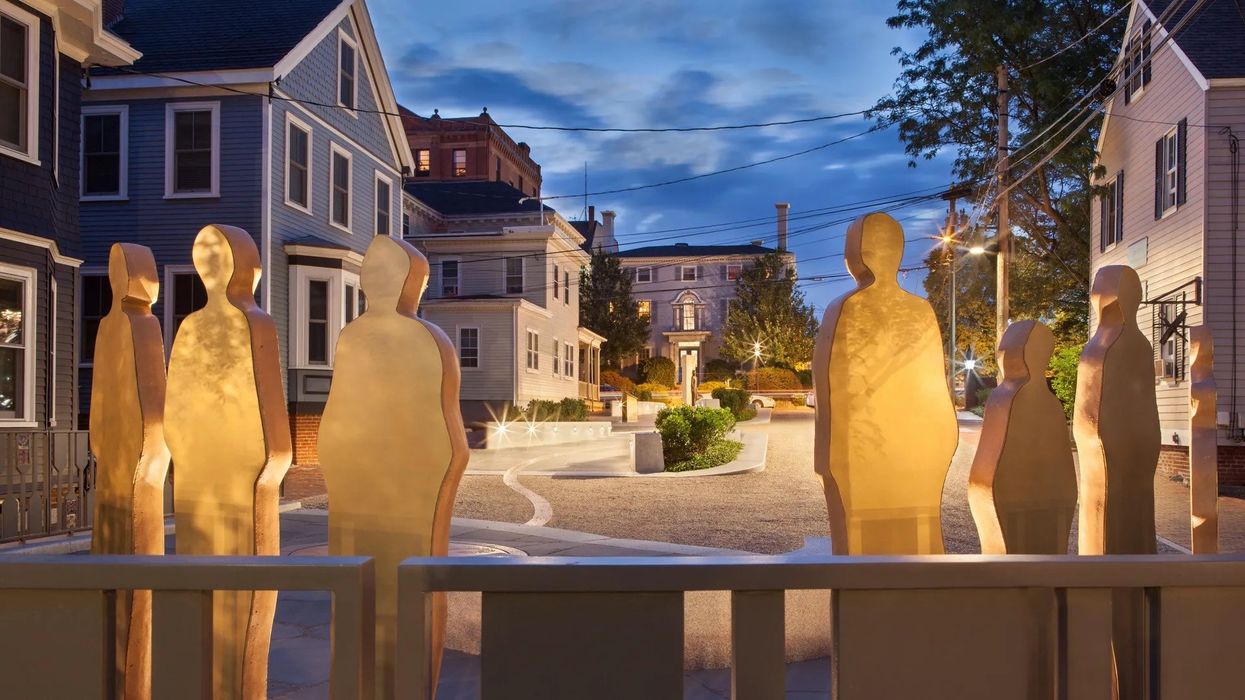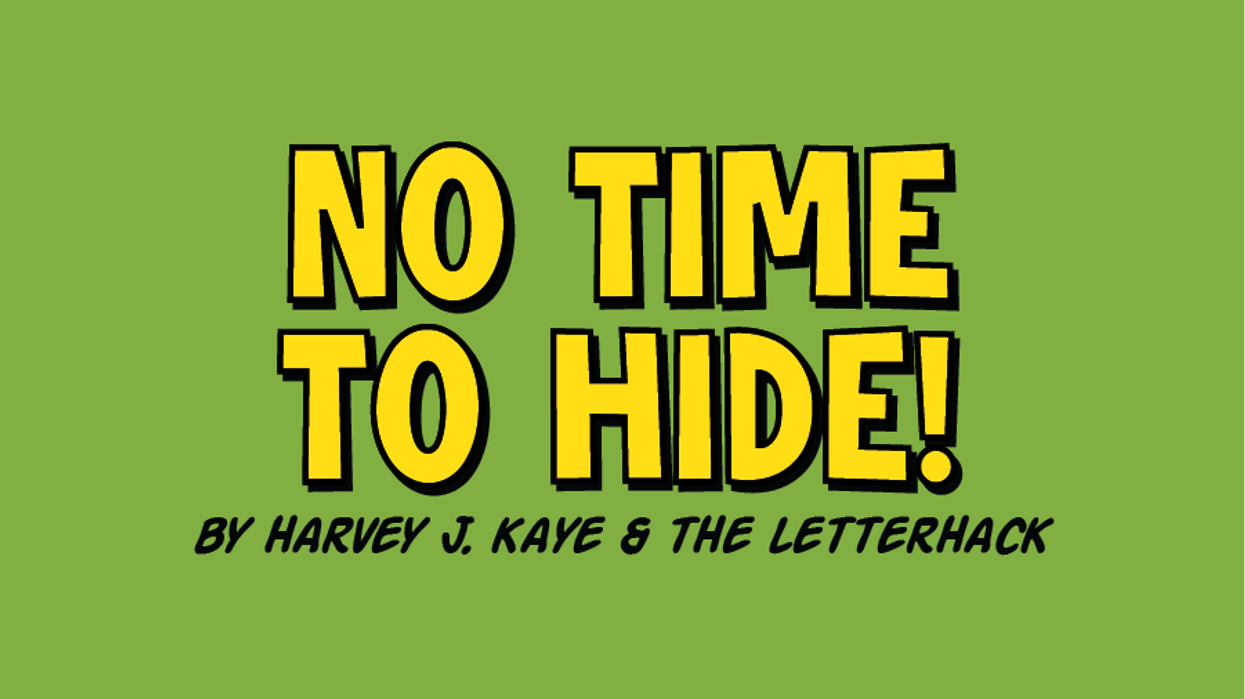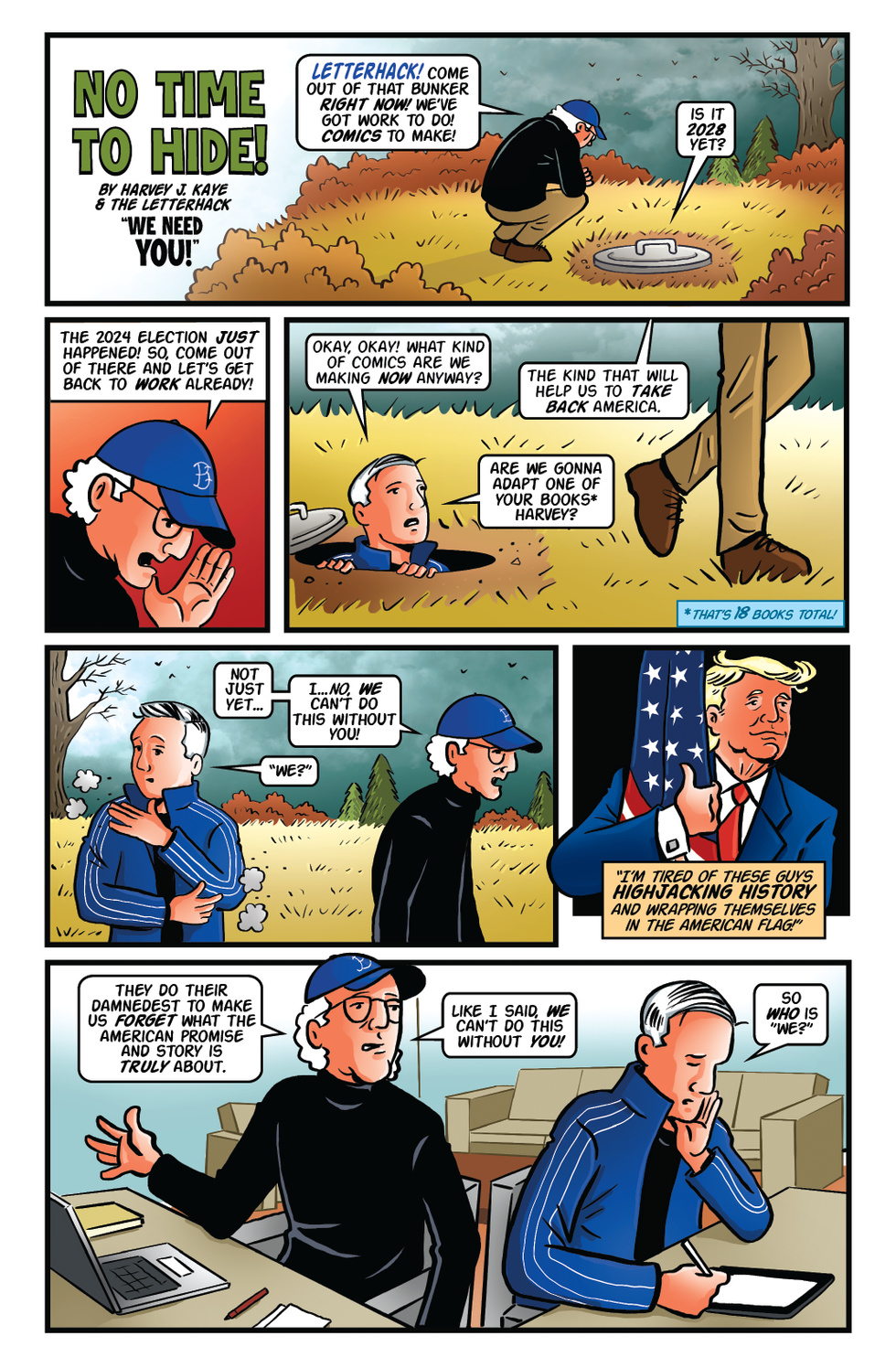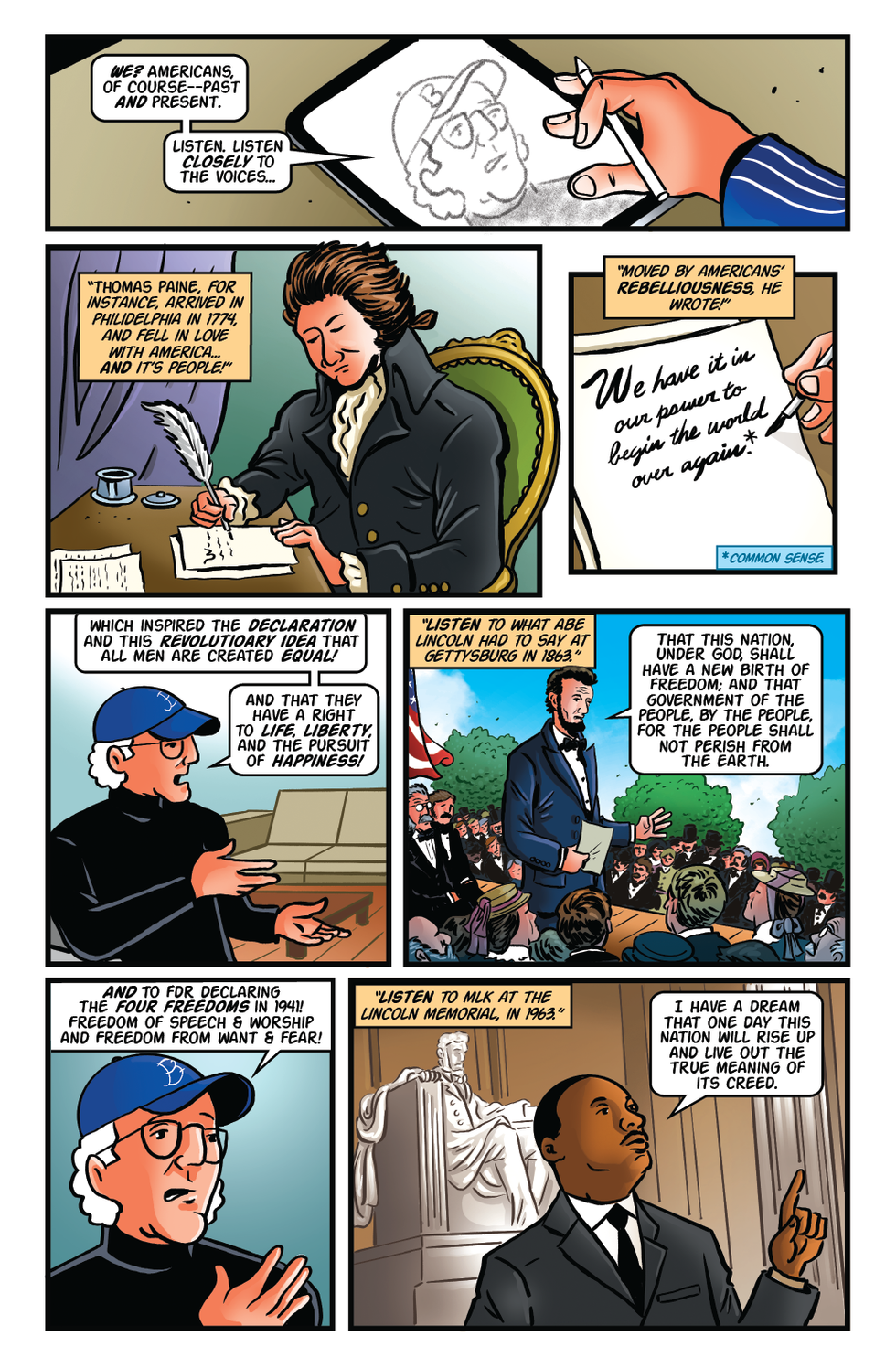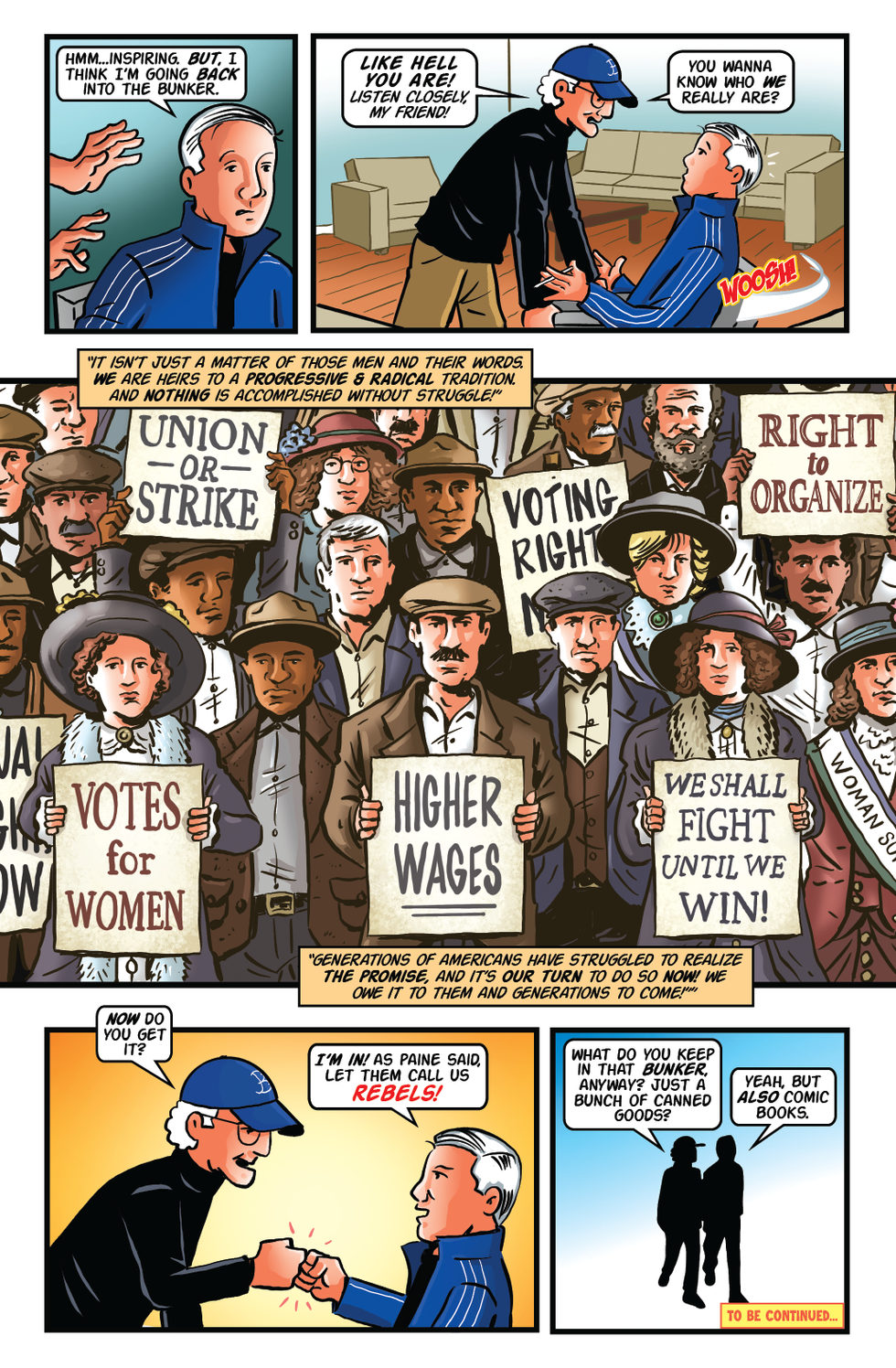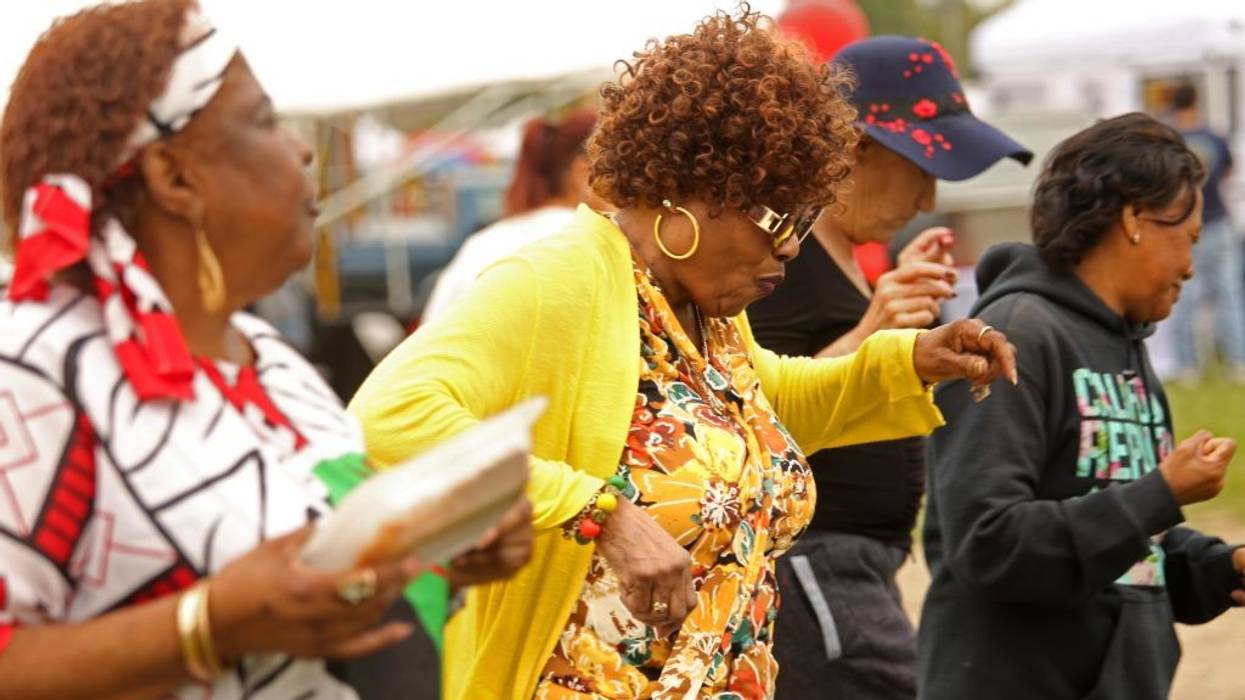This Juneteenth, America Must Choose to Live Up to Its Founding Documents
When we limit conversations about our complex past, we not only lose historical accuracy but also our capacity for growth and the honest reckoning that could finally help us fulfill our founding promises.
In 1796, 22-year-old Ona Marie Judge became one of America's most wanted fugitives. Born into slavery and held by President George Washington, Judge escaped from Philadelphia and fled north to New Hampshire. Washington immediately began hunting her, placing newspaper advertisements offering rewards for her return. For over 50 years, she would live as a fugitive, knowing that bounty hunters could appear at any moment to drag her back into bondage. Her story of survival reveals tensions that we're still grappling with today.
Judge's escape revealed the America we rarely acknowledge in our founding stories. As efforts to silence discussions of race and history spread nationwide—from federal agencies barring recognition of Black History Month to more than 44 states, including my home state of New Hampshire, limiting how schools can discuss racism—her story demands our attention.
Judge's escape laid bare the America we rarely acknowledge in our founding mythology.
The paradoxes Judge witnessed still define us. Washington was not the infallible moral leader of our imagination, but a flesh-and-blood man who owned other human beings and spent years trying to recapture the woman who dared seek freedom. New Hampshire was not removed from slavery's horrors—Portsmouth had been a major slave trading port since the 1600s.
Judge's escape laid bare the America we rarely acknowledge in our founding mythology. These tensions were the defining forces that shaped America's first century and continue to do so today. Judge's story illuminates how deeply slavery was woven into the fabric of the entire nation, connecting Black and white lives in ways our history books have long worked to hide. Understanding her experience becomes essential to understanding ourselves, especially as movements to obscure these complexities grow stronger.
The Pattern of Progress and Backlash
This current backlash against Black history education shouldn't surprise us—it follows a persistent American pattern. Every period of racial progress has triggered fierce resistance designed to roll back gains and rewrite the past. After Reconstruction brought Black political participation and civil rights, the country allowed Jim Crow laws to flourish and KKK terror to reign while Confederate monuments were erected across the South to rewrite the Civil War as a noble struggle rather than a fight to preserve slavery. The rise of the war on drugs and mass incarceration of Black Americans followed the 1960s civil rights laws. The election of the first Black president, Barack Obama, triggered the Tea Party movement and birtherism campaigns designed to delegitimize his presidency.
Today's attacks on how we discuss race and history represent the latest iteration of this cycle. When we limit conversations about our complex past, we not only lose historical accuracy but also our capacity for growth and the honest reckoning that could finally help us fulfill our founding promises.
Why Local Stories Matter
This ongoing struggle is why the work happening in New Hampshire—a politically purple state where Black residents make up just 2% of the population—offers constructive lessons for the rest of the nation. If honest conversations about Black history can flourish here, they can do so anywhere; however, success requires understanding what we like to use as a guideline: the rule of thirds. One third will support, one third will be persuaded, and one third will oppose. The progress is determined by the persuadable middle. We've seen how we can make real change by reaching that crucial middle group in New Hampshire.
Look no further than our annual July 4 readings of Frederick Douglass' "What to the Slave Is Your Fouth of July" speech, which has grown from one participating town to 22, with communities reading simultaneously across the state. From synagogues to rural town halls, people gather simply to hear Douglass' words—no discussion required, no positions demanded. This creates space for reflection and connection without the political battles that often shut down conversation before it begins.
Judge's legacy calls us to specific action: Resist erasure wherever we encounter it—in our children's schools, local libraries, state legislatures, and national debates.
Building unexpected alliances has proven equally powerful. Working with the Daughters of the American Revolution to install historical markers honoring Black Revolutionary War heroes demonstrates that historical truth enriches rather than threatens our understanding of patriotism. We've now placed nearly 40 markers throughout the state, each one making visible stories that were always there but rarely acknowledged.
This success stems from focusing on education and storytelling rather than confrontation, allowing facts and local narratives to speak for themselves. New Hampshire residents hunger for authentic stories about their own communities, even when those stories complicate their narratives about the past.
From resistance to Reckoning
The power of personal narrative will be on full display this Juneteenth, as Portsmouth hosts an unprecedented gathering where direct descendants of America's founding fathers and the people they enslaved come together to explore our intertwined histories. Shannon LaNier, the ninth-generation descendant of Thomas Jefferson and Sally Hemings, will join Laurel Guild Yancey, descendant of Portsmouth's Prince Whipple, a Black man who fought in the Revolutionary War while enslaved by Declaration of Independence signer William Whipple. In a profound twist of history, the Whipple family would later become the very people who provided sanctuary to Ona Judge when she sought refuge in Portsmouth—the same family line that had owned Prince Whipple would become her protectors, demonstrating how the arc of justice sometimes bends through the most unexpected transformations.
When descendants sit together sharing these narratives, they reveal how the stories of America's founding fathers and the people they enslaved have been inseparably linked across generations. These family histories, passed down through centuries, offer living proof that our nation's racial past isn't separate and distinct, but intimately woven together from the very beginning. Their gathering in Judge's adopted hometown creates a bridge across time, connecting her story of resistance to our current moment of choice.
After all, her choice to flee slavery, knowing the dangers ahead, required extraordinary courage. She lived in poverty, often depending on charity, and had outlived her three children and husband when she died in 1848. Yet she chose uncertainty over oppression, a fugitive's life over bondage, never abandoning her claim to freedom despite facing consequences far more severe than anything we encounter today.
The free Black families in Portsmouth who risked everything to shelter her further demonstrate that resistance has always been collective work, requiring people to see their own freedom as incomplete while others remained in chains. Their courage offers a template for our current moment, when we need that same spirit of collective action.
Judge's legacy calls us to specific action: Resist erasure wherever we encounter it—in our children's schools, local libraries, state legislatures, and national debates. Speak up when school boards attempt to ban books that tell the full story of American history. Engage with the persuadable middle in our communities, attend town halls, and vote for leaders who understand that historical truth strengthens, rather than weakens, our democracy. Most importantly, discover the complete stories of all who have lived in your community—Indigenous peoples, Black families, immigrants, and others whose experiences have been overlooked—and support those working to bring these histories to light.
This Juneteenth, as conversations unfold in the place where Judge found refuge, her story asks us to choose: Will we allow fear to silence these essential truths, or will we find the courage to engage in the honest reckoning needed to fulfill the promises of equality our founding documents made to all Americans?
